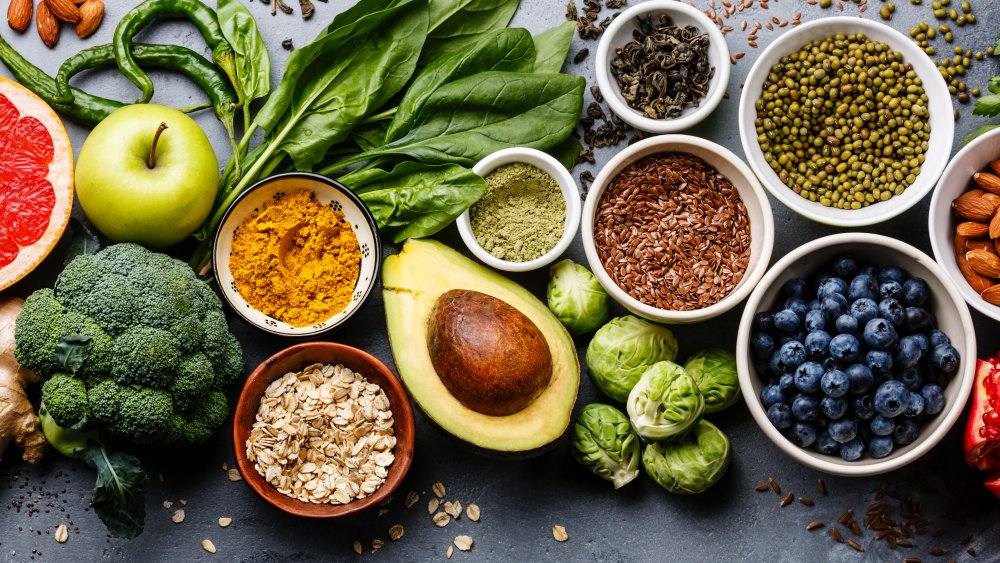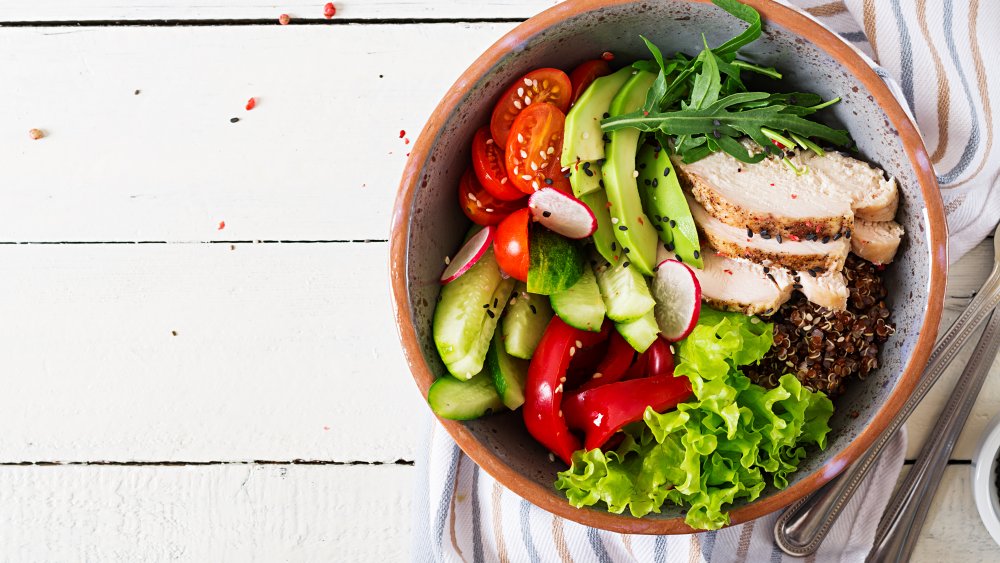Why Superfoods Aren't As Super As You Think
If you consider yourself to be a healthy eater, then chances are you probably have a shelf in your kitchen dedicated to superfoods — certain fruits, nuts, and seeds that are thought to be full of vitamins, minerals, and antioxidants which help fight everything from cancer to heart disease. But what if we told you that the idea of "superfoods" is a marketing concept?
Harvard's School of Public Health says the term "superfood" was first used in the early 20th century as part of a marketing strategy to push one of the United Fruit Company's biggest imports, the banana. Because scientists had said bananas were good for people with diabetes and celiac disease in medical journals, the banana importer decided to include the fruit's purported health benefits into its promotional material, and the first superfood was born.
Today's "superfoods" are marketed in the same way: through scientific research, attention-grabbing claims, and catchy marketing campaigns. These campaigns are what drew New York University nutrition and public health professor Dr. Marion Nestle to investigate the superfood industry more thoroughly and to present her findings in her Unsavory Truth, as reported by Insider. In her book, Nestle said she began to notice in 2015 that food industry sponsors were paying for nutrition studies to be carried out. Of the 168 studies she collected in a year, 156 were good for the companies that paid for the research.
Why companies pay for superfood research studies
Nestle noted (via Insider), "One of the things I noticed was that there were [studies on] all these foods that are demonstrably healthy. Why would you need to do research to prove that blueberries or raspberries or pomegranates or grapes are healthy?" She concluded, "So [the] only reason they were doing it is because they're trying to increase market share." Besides, in order to really back up a health food claim, Nestle said a study needs to cover several years. And to do that, you'd have to isolate people and feed the, strict diets, making sure they don't eat anything off-menu, which would "mess up your results." She added that you'd still be "looking at one food in the context of many, many, many different kinds of foods."
Surveys show customers are willing to pay more for foods that are considered to be healthy, and that research-backed health claims help them sell more. The survey also showed that around 80 percent of its respondents consider food to be medicine and are drawn to foods that are "proven" to prevent conditions like obesity, diabetes, hypertension, and high cholesterol. This also explains why fruits and seeds are on the top of superfood lists, as noted by Harvard's School of Public Health.
However, the core of sound nutritional advice has stayed the same — Nestle wrote, "Eat a wide variety of relatively unprocessed foods in reasonable amounts."

